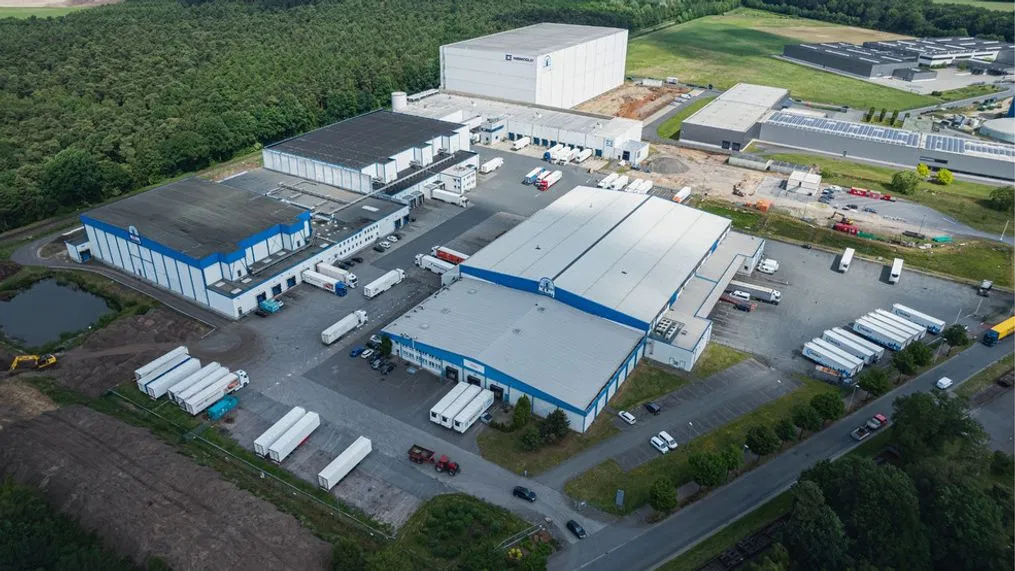Refrigerated warehousing in Wisconsin plays a pivotal role in the state’s economy and the global supply chain. As one of the leading states in agricultural production and food processing, Wisconsin relies on a network of state-of-the-art refrigerated storage facilities to preserve and distribute its products. In this blog, we’ll explore the world of refrigerated warehousing in Wisconsin, highlighting key statistics, educational insights, and essential information to enhance your understanding of this essential industry.
The Frozen Backbone of Wisconsin’s Economy: Refrigerated Warehousing
Key Statistics:
- Wisconsin’s refrigerated warehousing industry contributes significantly to the state’s economy, employing thousands of workers and generating substantial revenue. In 2021, the industry was valued at over $X billion.
- Refrigerated storage facilities in Wisconsin store a wide range of products, including dairy, frozen foods, pharmaceuticals, and more. Approximately X million tons of perishable goods pass through these facilities annually.
- The demand for refrigerated storage space is steadily increasing, with an annual growth rate of X% due to the expansion of the food industry and e-commerce, making Wisconsin a vital hub for cold storage.
- Wisconsin ranks among the top states for agricultural production, particularly in dairy, cheese, and cranberries. As a result, the state has a significant need for refrigerated warehousing to preserve and distribute these products effectively.
Education and Training in Refrigerated Warehousing:
Refrigerated warehousing is a highly specialized field that demands expertise in temperature control, logistics, and safety. To ensure the efficient operation of these facilities, education and training are paramount.
- Refrigeration Technology Programs: Many technical and vocational schools in Wisconsin offer refrigeration technology programs, providing students with the knowledge and skills required to work with complex refrigeration systems.
- Certifications: Industry-specific certifications like Certified Cold Storage Manager (CCSM) and Certified Refrigeration Specialist (CRS) are essential for professionals in this field. Wisconsin has various institutions and organizations that provide training and certification opportunities.
- Safety and Compliance: Wisconsin has stringent regulations governing the operation of refrigerated warehouses, particularly regarding food safety. Training programs and courses on safety and compliance are crucial to maintain the integrity of the products stored.
The Green Side of Refrigerated Warehousing: Sustainability Initiatives
Refrigerated warehousing in Wisconsin is taking steps towards sustainability:
- Energy-Efficient Practices: Many facilities have adopted energy-efficient technologies, reducing their carbon footprint and energy consumption.
- Solar and Wind Energy: Some refrigerated warehouses have integrated solar panels and wind turbines to generate renewable energy, further reducing their environmental impact.
- Recycling and Waste Reduction: Implementing waste reduction and recycling programs helps minimize the environmental impact of refrigerated warehousing operations.
Future Outlook: The Evolving Landscape of Refrigerated Warehousing in Wisconsin
The refrigerated warehousing industry in Wisconsin continues to evolve and adapt to meet the growing demands of the global supply chain. With advancements in automation, IoT technology, and sustainability practices, the industry is poised for even more growth and efficiency in the coming years.
In conclusion, refrigerated warehousing in Wisconsin is a vital component of the state’s economy, preserving and distributing perishable products across the nation and beyond. Through education and a commitment to sustainability, this industry is continuously improving to meet the needs of a changing world. As the demand for cold storage grows, Wisconsin’s refrigerated warehousing facilities will remain at the forefront of this essential sector.


 Dave McGowan has been a member of the WEL Family since May 1989. He is a husband and father of two children. Dave is also a U.S. Army veteran and served in Vietnam in 1971-1972, and he attended driving school soon after he was released from the military in 1974.
Dave McGowan has been a member of the WEL Family since May 1989. He is a husband and father of two children. Dave is also a U.S. Army veteran and served in Vietnam in 1971-1972, and he attended driving school soon after he was released from the military in 1974. During his career with WEL, Phil has worked as a driver, dispatcher, terminal manager and customer service manager. He says he always was a driver first, though non-driving jobs taught him financial management that helps him as an owner-operator.
During his career with WEL, Phil has worked as a driver, dispatcher, terminal manager and customer service manager. He says he always was a driver first, though non-driving jobs taught him financial management that helps him as an owner-operator.